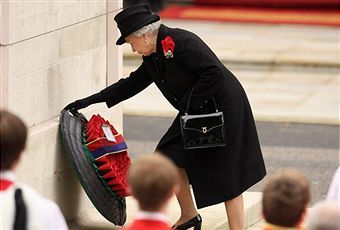 Admiral Lord West’s intervention was most striking in its language. He promised that a ‘national humiliation
on the scale of the loss of Singapore’ would ensue unless his advice was heeded. Writing in the Times
(£), Sir Menzies Campbell notes West’s seething tone and concludes that his frustration was the product of a review of defence resources, not strategy. At no point, Campbell says,
did the government ask ‘what sort of country do we want to be’ and plan accordingly. Campbell continues:
Admiral Lord West’s intervention was most striking in its language. He promised that a ‘national humiliation
on the scale of the loss of Singapore’ would ensue unless his advice was heeded. Writing in the Times
(£), Sir Menzies Campbell notes West’s seething tone and concludes that his frustration was the product of a review of defence resources, not strategy. At no point, Campbell says,
did the government ask ‘what sort of country do we want to be’ and plan accordingly. Campbell continues:
The answer to most of those questions is no. Britain does not want to be that kind of power – indeed, it can’t afford the hardware to stride the world. Britain seeks a new course, now that the trade winds have shifted.‘Is Britain ready now or likely to be ready to go to the aid, alone or with allies, of a nation that becomes the target of aggression, as we did in Sierra Leone and Kosovo? Are we now willing or likely to be willing to offer troops in substantial numbers for UN peacekeeping or much more daunting peace enforcement? Are we prepared or likely to be prepared to have the exhaustive review of our nuclear posture that should have been a formal part of the defence review? Are we now willing or likely to be willing to join the US in any form of military action against Iran if it persists in its bloody-minded determination to obtain a military nuclear capability?’
The government’s voluble emphasis on international development is inspired by the ongoing task of ‘de-toxifying the Tory brand’, but it is also a commitment to soft power. So too the elaborate trade missions to India and China, and the Foreign Office’s attempts to cast out the malign triumvirate of (£) ‘isolationism, protectionism and nativism’ from the single market and other trading partners. The Anglo-French defence pact unites what remains of the two countries’ defence establishments, as they recover from what (we hope) was the fiscal nadir – it is also a revolutionary guarantee for European security as America withdraws from the Old World.
This integrated approach has had a long gestation, and now Andrew Mitchell, Liam Fox and William Hague are adamant that it is in the national interest to be subtly but wholly self-interested. That is what middling powers do. All of which makes the acutely political bookkeeping exercise that was the Strategic Defence Review even more unsatisfactory.






Comments